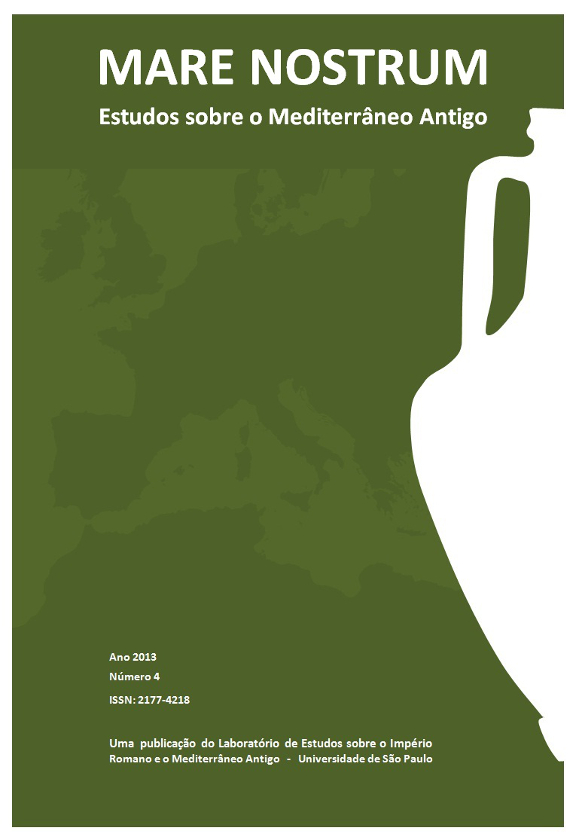El Proceso de Legitimación y Reconocimiento del Priscilianismo en la Segunda Mitad del Siglo IV
DOI:
https://doi.org/10.11606/issn.2177-4218.v4i4p67-80Palabras clave:
Priscilianismo, Legitimación, Magno Máximo, Autoridad Político-religiosaResumen
In the 4th century was developed in the Gallaecia region a new interpretation of Cristianism called Priscillianism, because its creator was Priscillian of Avila. After being denounced by the nicene faction of ecclesia of Diocésis Hispaniarum, Priscillian and their followers tried to obtain a legitimation and the recognition of the authority of their Christian interpretation, both in the ambit of the ecclesia and in ambit imperial adiministration. Despite having obtained success at the first moment, Priscillian and his followers saw their recognition questioned because of the process of imperial legitimation around of Magnus Maximus. In this article, we aim to discuss how the legitimation process and the recognition of political-religious authority of Priscillianism was developed and how it touched other authority legitimation process, in the person of usurper Magnus Maximus.Descargas
Los datos de descarga aún no están disponibles.
Descargas
Publicado
2013-10-28
Número
Sección
Artículos
Licencia
Mare Nostrum no se hace responsable del contenido vertido en la publicación, el cual depende exclusivamente del autor o autores del texto.
La reproducción de textos publicados por Mare Nostrum se distribuye bajo una licencia de uso y distribución de Creative Commons Attribution-NonCommercial 4.0 International (CC BY-NC).
Los autores que publican en esta revista deben estar de acuerdo con los siguientes términos:
- Los autores conservan los derechos de autor y garantizan el derecho de la revista a realizar la primera publicación con una colaboración simultánea autorizada bajo la licencia Creative Commons Attribution License, que permite difundir el trabajo con el reconocimiento de su autoría y de que ha sido publicado inicialmente en esta revista.
- Los autores tienen la posibilidad de realizar acuerdos contractuales adicionales para una distribución no exclusiva de la versión del trabajo publicada en la revista (por ejemplo, compartirla en un repositorio institucional o publicarla en un libro), siempre que quede constancia de su publicación inicial en esta revista.
- Se permite e incluso se anima a los autores a que compartan su trabajo online (por ejemplo, en un repositorio institucional o en sus páginas web) antes y durante el proceso de envío, con vistas a que se generen intercambios productivos, así como una citación del trabajo previa a la publicación y de mayor calado (véase The Effect of Open Access).
Cómo citar
El Proceso de Legitimación y Reconocimiento del Priscilianismo en la Segunda Mitad del Siglo IV. (2013). Mare Nostrum, 4(4), 67-80. https://doi.org/10.11606/issn.2177-4218.v4i4p67-80









